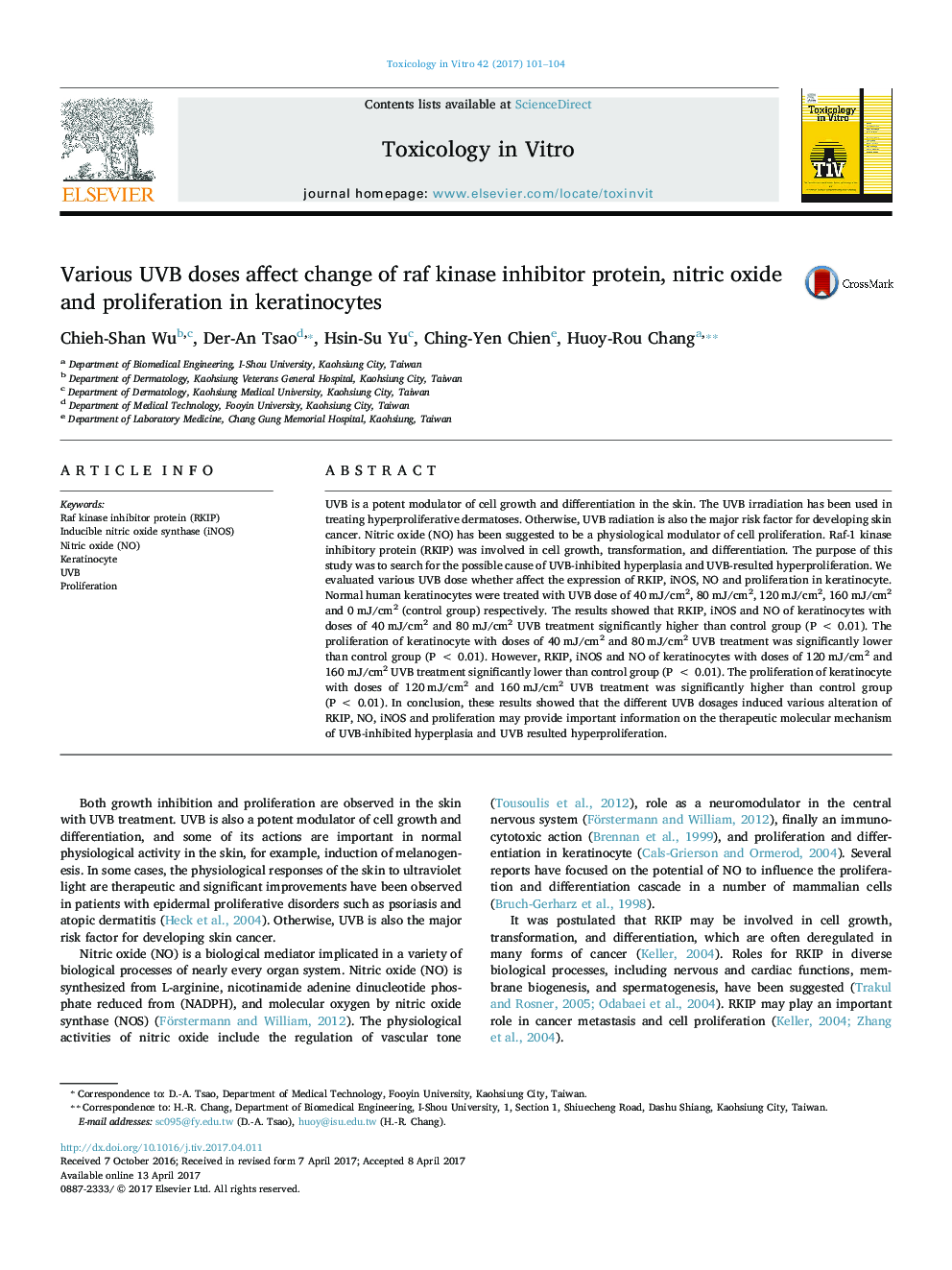| Article ID | Journal | Published Year | Pages | File Type |
|---|---|---|---|---|
| 5562650 | Toxicology in Vitro | 2017 | 4 Pages |
â¢The high UVB dosages result in alteration of RKIP, NO, iNOS and proliferatrion.â¢The low UVB dosages result in alteration of RKIP, NO, iNOS and proliferatrion.â¢UVB results in the mechanism of hyperliferation and UVB-inhibited hyperplasia.
UVB is a potent modulator of cell growth and differentiation in the skin. The UVB irradiation has been used in treating hyperproliferative dermatoses. Otherwise, UVB radiation is also the major risk factor for developing skin cancer. Nitric oxide (NO) has been suggested to be a physiological modulator of cell proliferation. Raf-1 kinase inhibitory protein (RKIP) was involved in cell growth, transformation, and differentiation. The purpose of this study was to search for the possible cause of UVB-inhibited hyperplasia and UVB-resulted hyperproliferation. We evaluated various UVB dose whether affect the expression of RKIP, iNOS, NO and proliferation in keratinocyte. Normal human keratinocytes were treated with UVB dose of 40Â mJ/cm2, 80Â mJ/cm2, 120Â mJ/cm2, 160Â mJ/cm2 and 0Â mJ/cm2 (control group) respectively. The results showed that RKIP, iNOS and NO of keratinocytes with doses of 40Â mJ/cm2 and 80Â mJ/cm2 UVB treatment significantly higher than control group (PÂ <Â 0.01). The proliferation of keratinocyte with doses of 40Â mJ/cm2 and 80Â mJ/cm2 UVB treatment was significantly lower than control group (PÂ <Â 0.01). However, RKIP, iNOS and NO of keratinocytes with doses of 120Â mJ/cm2 and 160Â mJ/cm2 UVB treatment significantly lower than control group (PÂ <Â 0.01). The proliferation of keratinocyte with doses of 120Â mJ/cm2 and 160Â mJ/cm2 UVB treatment was significantly higher than control group (PÂ <Â 0.01). In conclusion, these results showed that the different UVB dosages induced various alteration of RKIP, NO, iNOS and proliferation may provide important information on the therapeutic molecular mechanism of UVB-inhibited hyperplasia and UVB resulted hyperproliferation.
